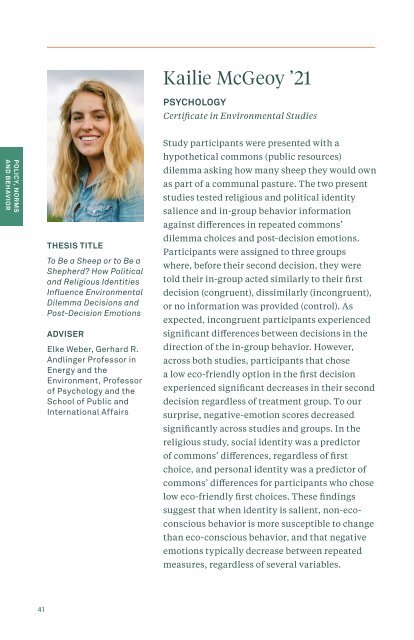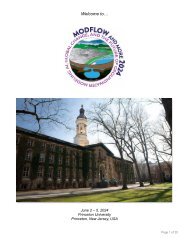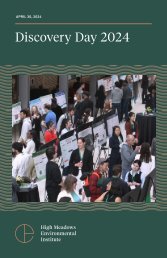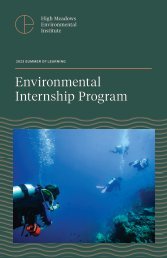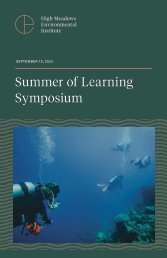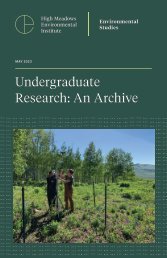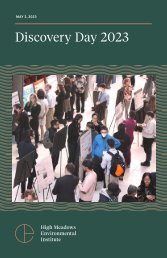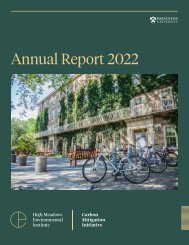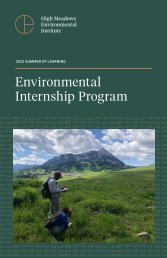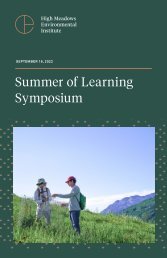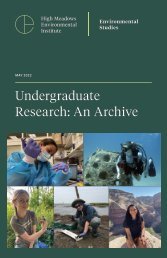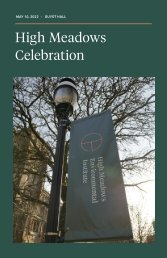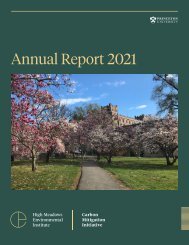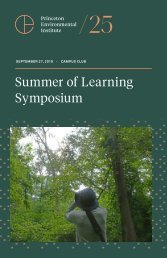Undergraduate Research: An Archive - 2021 Program
You also want an ePaper? Increase the reach of your titles
YUMPU automatically turns print PDFs into web optimized ePapers that Google loves.
Kailie McGeoy ’21<br />
PSYCHOLOGY<br />
Certificate in Environmental Studies<br />
POLICY, NORMS<br />
AND BEHAVIOR<br />
THESIS TITLE<br />
To Be a Sheep or to Be a<br />
Shepherd? How Political<br />
and Religious Identities<br />
Influence Environmental<br />
Dilemma Decisions and<br />
Post-Decision Emotions<br />
ADVISER<br />
Elke Weber, Gerhard R.<br />
<strong>An</strong>dlinger Professor in<br />
Energy and the<br />
Environment, Professor<br />
of Psychology and the<br />
School of Public and<br />
International Affairs<br />
Study participants were presented with a<br />
hypothetical commons (public resources)<br />
dilemma asking how many sheep they would own<br />
as part of a communal pasture. The two present<br />
studies tested religious and political identity<br />
salience and in-group behavior information<br />
against differences in repeated commons’<br />
dilemma choices and post-decision emotions.<br />
Participants were assigned to three groups<br />
where, before their second decision, they were<br />
told their in-group acted similarly to their first<br />
decision (congruent), dissimilarly (incongruent),<br />
or no information was provided (control). As<br />
expected, incongruent participants experienced<br />
significant differences between decisions in the<br />
direction of the in-group behavior. However,<br />
across both studies, participants that chose<br />
a low eco-friendly option in the first decision<br />
experienced significant decreases in their second<br />
decision regardless of treatment group. To our<br />
surprise, negative-emotion scores decreased<br />
significantly across studies and groups. In the<br />
religious study, social identity was a predictor<br />
of commons’ differences, regardless of first<br />
choice, and personal identity was a predictor of<br />
commons’ differences for participants who chose<br />
low eco-friendly first choices. These findings<br />
suggest that when identity is salient, non-ecoconscious<br />
behavior is more susceptible to change<br />
than eco-conscious behavior, and that negative<br />
emotions typically decrease between repeated<br />
measures, regardless of several variables.<br />
41


